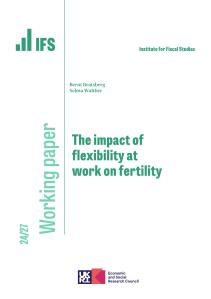Child benefit withdrawal is a problematic part of the benefit system, partly because it creates very high tax rates for those affected. Raising the threshold to £120,000 and switching to household assessment would mean that only 900,000 families (12% of those with children) would still be losing some or all of their child benefit. That does mean that the problems affect fewer people. But at the same time, at that point one has to ask whether it's really worth having the additional administrative apparatus, rather than simply returning child benefit to being universal, as it always was before 2013. This would cost around another £1½ billion a year on top of the Conservatives' plan.
If we are to continue to withdraw child benefit from those with high incomes, basing it on household income certainly has much to be said for it. The current system, which gives full child benefit to a couple earning £120,000 who split their income evenly and nothing to a couple where one person earns £80,000 and the other doesn't work, is indefensible. However, the administrative practicalities of moving to household-based assessment are going to be challenging because our tax system - by which child benefit withdrawal is administered - is based on individual income. Indeed, this may well be why child benefit has been withdrawn in the rather odd way hitherto. In any case, we already have a means-tested benefit for families with children that is based on household income - universal credit. It's not clear what the point is of having a second one, means-tested in a different way.










